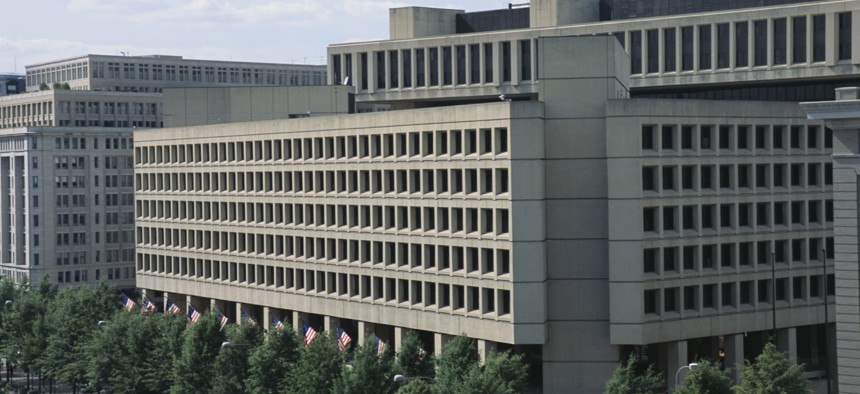In a shocking twist of events, the DOJ and FBI confirmed in a memo released on July 8, 2025, that an exhaustive review of Jeffrey Epstein"s documents found no credible evidence of a client list tied to his notorious sex trafficking operation. This revelation has sent shockwaves through right-wing circles, igniting a firestorm of conspiracy theories and public outcry, particularly from prominent figures like Alex Jones, who expressed his visceral reaction to the memo in a tearful video.
DOJ and FBI Memo Claims No Evidence Found
The DOJ memo, made publicly available through official channels, stated that their extensive investigations did not uncover any evidence that Epstein blackmailed influential individuals or that there was a comprehensive list of clients involved in his criminal activities. Instead, the memo reiterated findings from previous investigations that Epstein had harmed over a thousand victims.
Epstein"s Legacy and the Ongoing Impact
Epstein"s actions have left a lasting impact that cannot be ignored. The systemic failures that allowed him to exploit vulnerable individuals for so long go beyond the individual case. They reflect a broader societal issue where powerful figures often evade accountability, perpetuating cycles of abuse and silence. The DOJ"s findings, while definitive, also highlight the urgent need for systemic reform in how we address such heinous crimes.
Alex Jones" Emotional Reaction and Conspiracy Theories
Jones, known for his extreme conspiracy theories, broke down emotionally in a video shared online, claiming that the Justice Department is running cover for intelligence agencies like the CIA and Mossad. He declared, "NO ONE IS BUYING THIS!!" and questioned the integrity of U.S. Attorney General Pamela Bondi, who earlier suggested that a list of Epstein"s clients was available. His reaction underscores a significant divide in American society, where misinformation often feeds into a narrative that fuels anger and distrust in public institutions.
Public Sentiment and Misinformation
The release of the DOJ memo has generated a complex tapestry of public sentiment. Many conspiracy theorists, emboldened by the ongoing narratives surrounding Epstein, continue to assert that the absence of a client list is evidence of a cover-up. Their claims, while lacking in evidence, resonate with a faction of the population that feels disenfranchised and distrustful of the government. This phenomenon is particularly alarming as it reflects a broader trend of misinformation that can undermine efforts to address real issues of accountability and justice.

FBI to reassign 1,500 employees outside of D.C. area, vacate ...
The Role of Media in Shaping Narratives
As the media grapples with the fallout from Epstein"s case, it becomes increasingly important to scrutinize how narratives are framed. Coverage that sensationalizes conspiracy theories can further entrench misinformation, complicating the public"s understanding of systemic abuse and exploitation. According to AP News, Bondi"s earlier assertions regarding the existence of significant evidence have not been substantiated, leading to confusion and frustration among those seeking justice for Epstein"s victims.
Consequences for Victims and Justice Reform
The implications of these developments are profound. Victims of Epstein"s exploitation are often left in the shadows of public discourse, overshadowed by sensationalized narratives that prioritize conspiracy over accountability. The DOJ"s findings serve as a reminder that the fight for justice must also focus on systemic reform to ensure that such abuses are not only addressed but prevented in the future. As we continue to unravel the layers of Epstein"s case, we must also advocate for policies that prioritize the voices of survivors and hold perpetrators accountable.

![[Video] Anti-ICE Protester Pepper Sprayed as CBP Agents Disperse Crowd in Minneapolis](/_next/image?url=%2Fapi%2Fimage%2Fthumbnails%2Fthumbnail-1768260677127-y71sb7-thumbnail.jpg&w=3840&q=75)

![[Video] Several injured as U-Haul truck drives through Iranian protestors in Los Angeles](/_next/image?url=%2Fapi%2Fimage%2Fthumbnails%2Fthumbnail-1768176682028-q95y6j-thumbnail.jpg&w=3840&q=75)
![[Video] Scuffle breaks out between Trump supporters and Anti-ICE protesters in Times Square](/_next/image?url=%2Fapi%2Fimage%2Fthumbnails%2Fthumbnail-1768165958203-hgcgb-thumbnail.jpg&w=3840&q=75)


![[Video] Gunfire between Iraqi security forces and Sadr militias in Baghdad](/_next/image?url=%2Fapi%2Fimage%2Fthumbnails%2Fthumbnail-1768343508874-4redb-thumbnail.jpg&w=3840&q=75)
